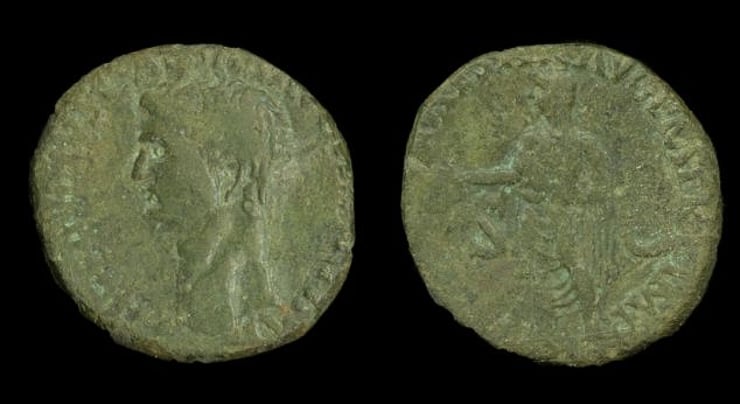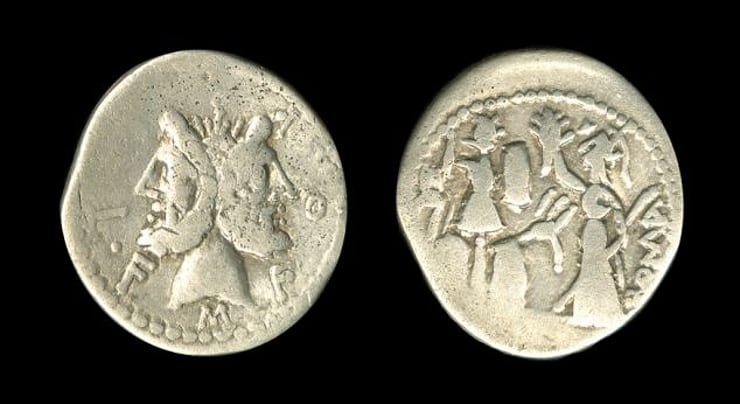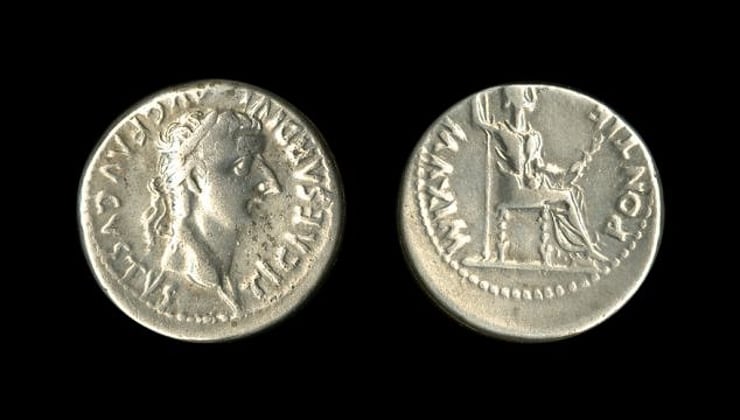Dřív jsem i sledoval jeden UK detectoring web a pořád mě překvapuje, že tam nacházej tolik republikánskejch mincí - když tam římský osídlení bylo až o dost později.
14.10.2021 Fisherman finds coins that belonged to a soldier
Categories: Calendar , Nálezy nejenom s detektorem ve Velké Británii a Irsku
Treasure hunter and fisherman Jason Hemmings (41) has discovered Roman coins believed to have been dropped by a soldier two thousand years ago. The Dorset man made the haul with a metal detector he bought from a friend for £300. In total he found fifteen bronze and silver coins.
The coins were examined by experts from the British Museum who described it as very exciting. The money was probably dropped by a soldier two thousand years ago. Back then, that kind of money would have bought eight loaves of bread.
The coins date back to the Roman and Iron Age. Hemming spends most of his free time fishing. He bought a metal detector just before he found the treasure. But he liked the search a lot, so he went looking for gold in a field in Owermoigne, Dorset, and came across fifteen coins that are believed to have been there for around two thousand years.
Forty-one-year-old Mr Hemmings started the hobby when he bought a detector for £300 from a friend who wanted to get a better model. "At first it looked like I wasn't going to find anything in the field in question. I went here and there, still nothing. Eventually I had to go home early on the first day. I had a Sunday roast waiting for me. But I came back the next day and did well. The detector started giving off faint, intermittent signals. So I started digging," Hemmings recalled.
When he discovered the coins, he followed the correct procedure and reported the find. It was immediately clear to the liaison officer that the finder had found something truly rare. Although the financial value of the coins is only a few hundred pounds, the historical value is very important.
British Museum expert Eleanor Ghey said the coins were probably dropped by a soldier at the time the Romans first came to the country. "These coins are likely to be close to the date of the conquest of Britain in 43 AD. They pinpoint almost exactly when the Romans were first in Britain. It's the first such collection we've acquired," Ghey rejoiced.
The depot contained three different currencies that were in circulation in Britain in the middle of the first century AD. They include, for example, large bronze coins of the Roman Emperor Claudius issued between 41 and 50 AD. The treasures, which can be confidently dated to the early years of Claudian conquest, are incredibly rare, according to experts at the British Museum.




Sources: www.dailymail.co.uk
The article is included in categories:
- Archive of articles > Calendar
- Archive of articles > Archaeology > Finds and rescue research abroad > Nálezy nejenom s detektorem ve Velké Británii a Irsku
Post
Upustil..., safra 
Tedy od dnešního dne, - výsyp, rozsyp a upustil. Vývoj je přirozenou částí života.
Marky - Tak jako dohad, asi je to trochu logický. Jeden denár je Tiberius, což je krátce před tou invazí ve 43 (a nemůže to teda být od Caesarovy invaze), druhej denár je zas nějakej republikánskej, takže to bude spíš starší, než pozdější. A pokud by to teda bylo z tý brzký doby invaze, tak tam většina římanů byli vojáci, civil se tam stěhoval později.
Dom třeba Mušov podle míncí je doba římského vlivu 300let-400let?Nebo ten denár logicky koloval 20-50-100-150let.Stahovalo se platidlo v té době při nástupu nového panovníka?
No vždyť jo, možný je cokoliv. Myslim to tak, že to je dohad, kterej akorát dává nějakej smysl.









